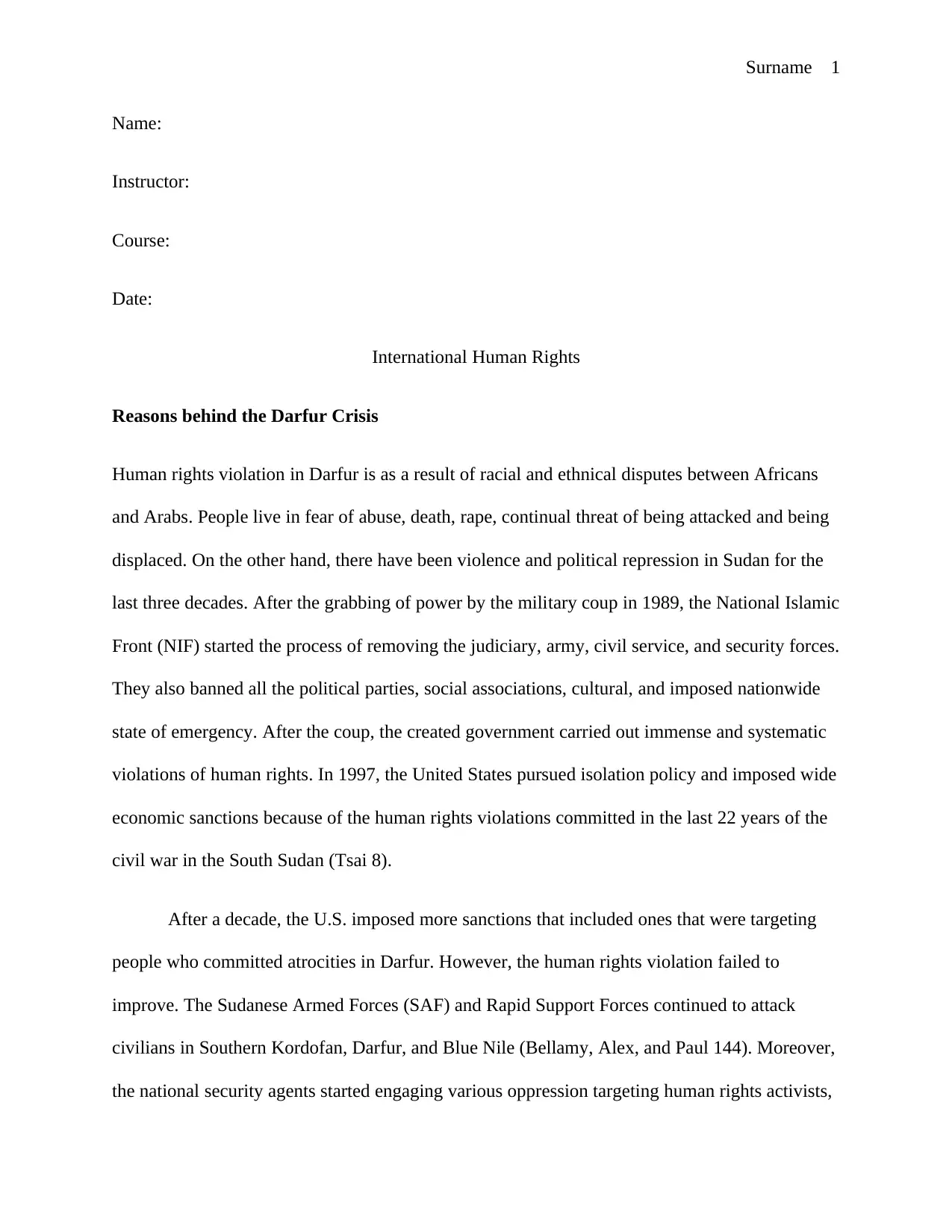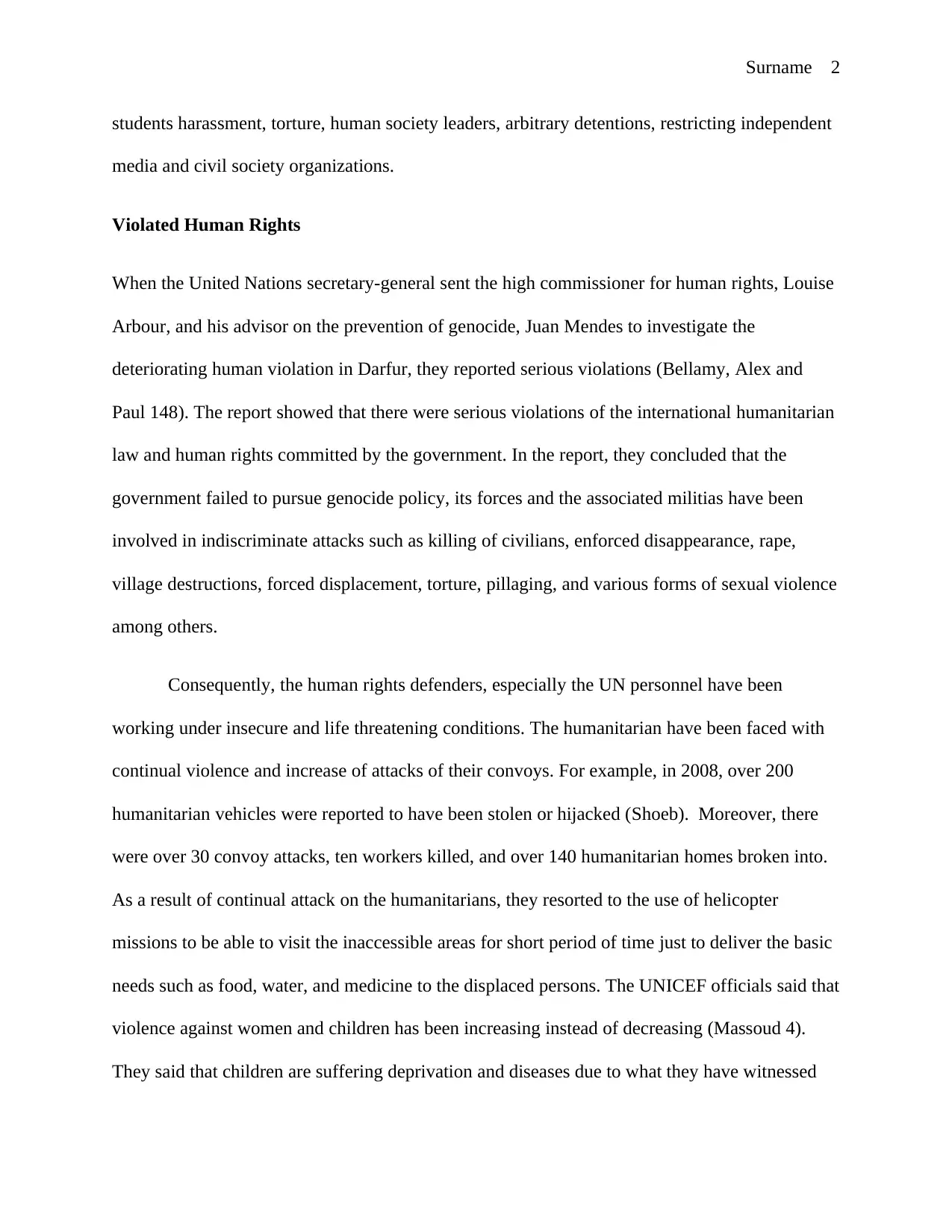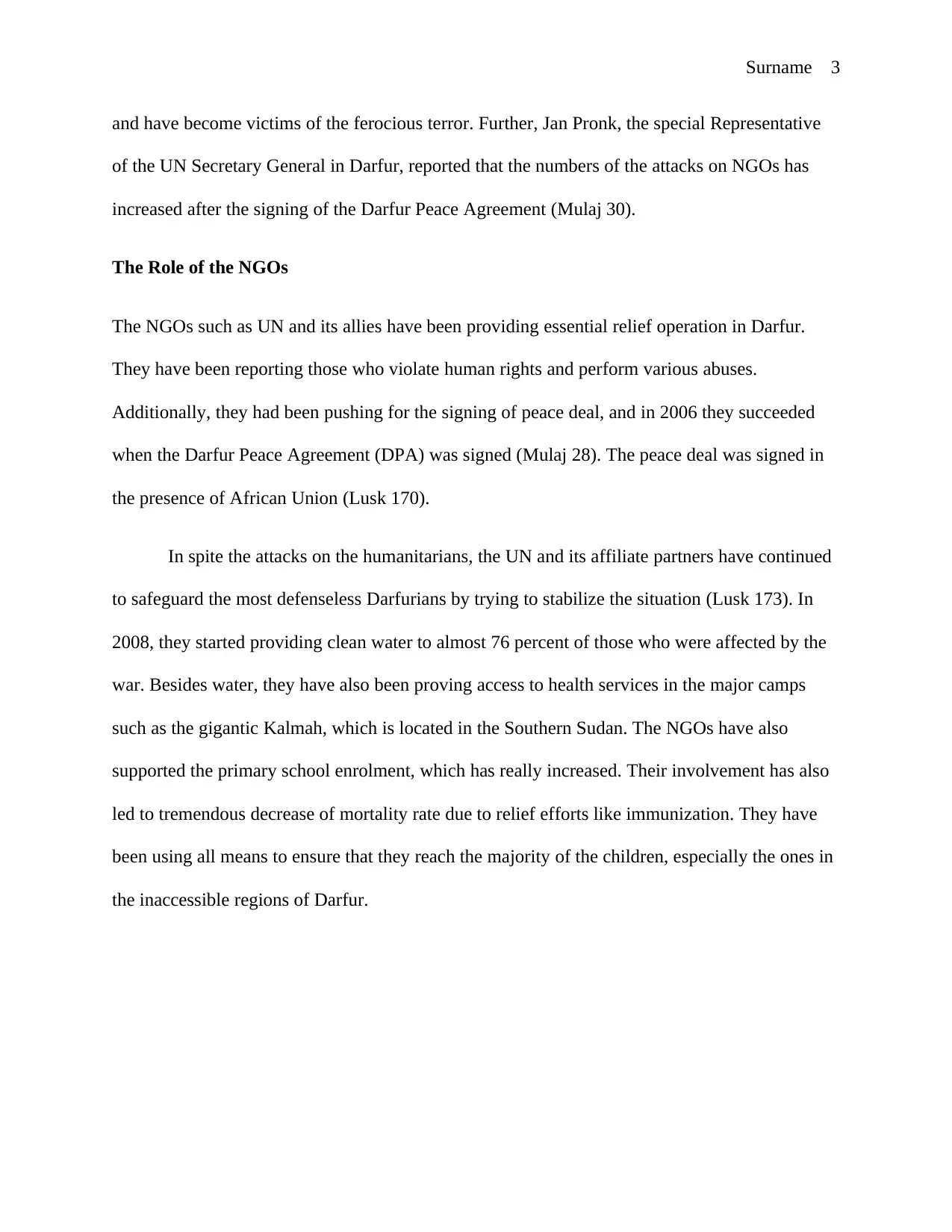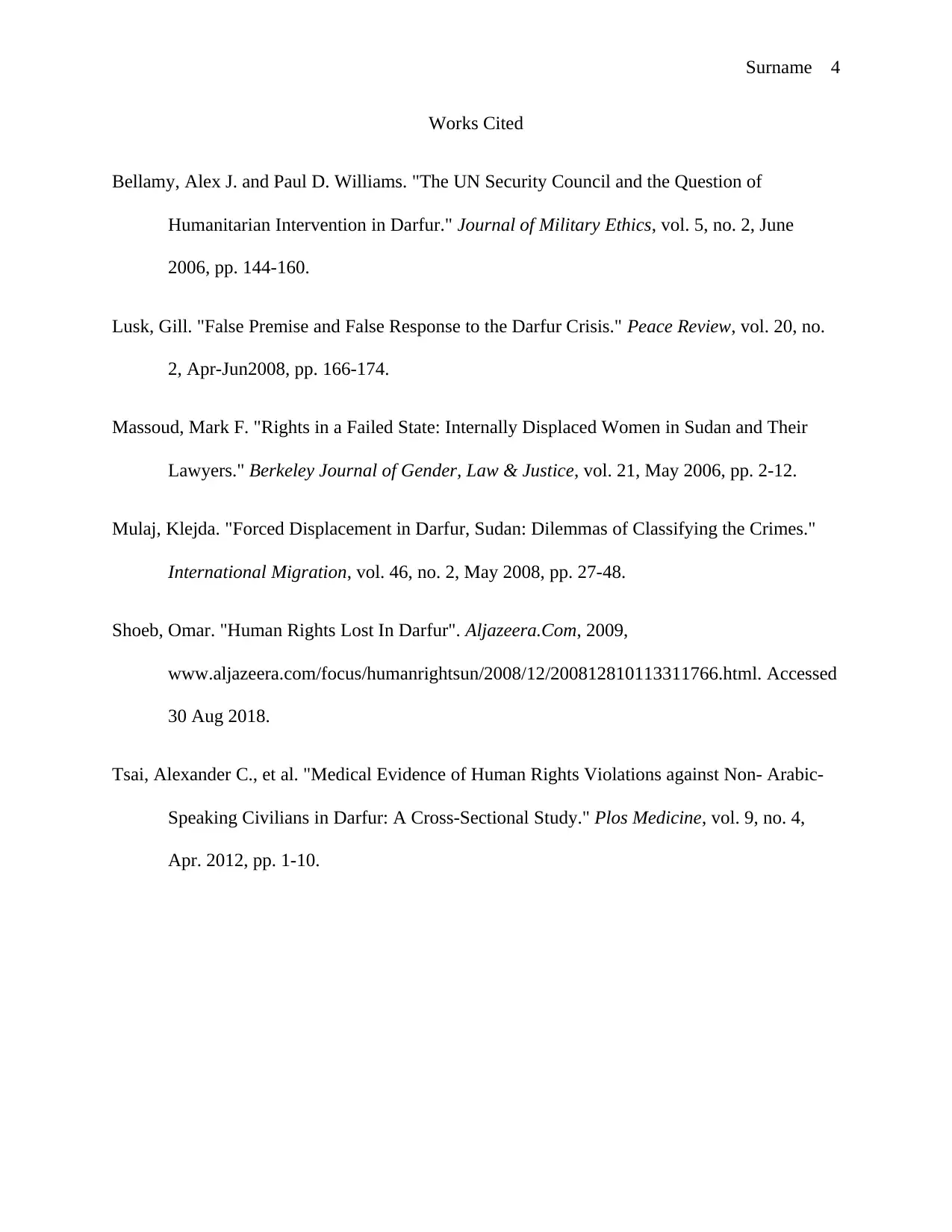Analyzing the Darfur Crisis: Human Rights Violations and NGO Impact
VerifiedAdded on 2023/06/08
|4
|1096
|171
Essay
AI Summary
This essay examines the Darfur crisis, attributing its roots to racial and ethnic disputes leading to widespread human rights violations, including violence, rape, and displacement. It highlights the Sudanese government's role in these violations, particularly after the 1989 military coup, and the subsequent international sanctions imposed by the United States. The essay discusses the findings of UN investigations, which reported severe violations of international humanitarian law, such as indiscriminate attacks on civilians and sexual violence. It also emphasizes the challenging and insecure conditions faced by humanitarian organizations, including attacks on their convoys and personnel. Furthermore, the essay acknowledges the crucial role of NGOs like the UN in providing relief operations, advocating for peace agreements, and safeguarding vulnerable Darfurians by providing essential services like clean water, healthcare, and education, despite facing continual violence and attacks.
1 out of 4





![[object Object]](/_next/static/media/star-bottom.7253800d.svg)